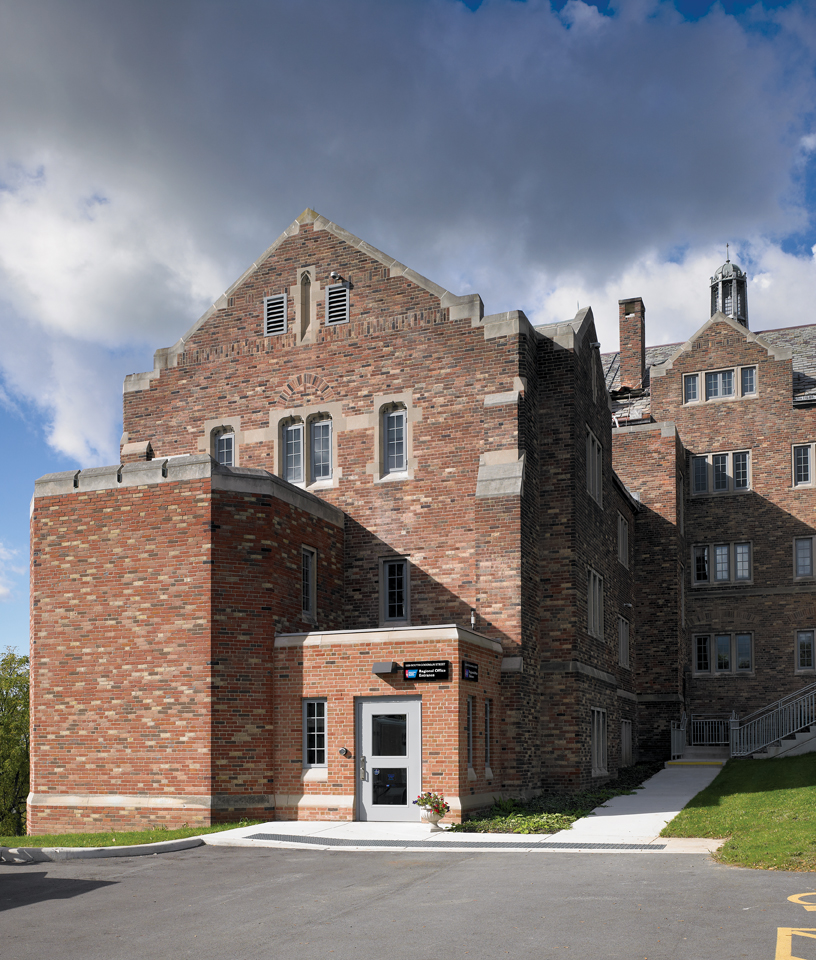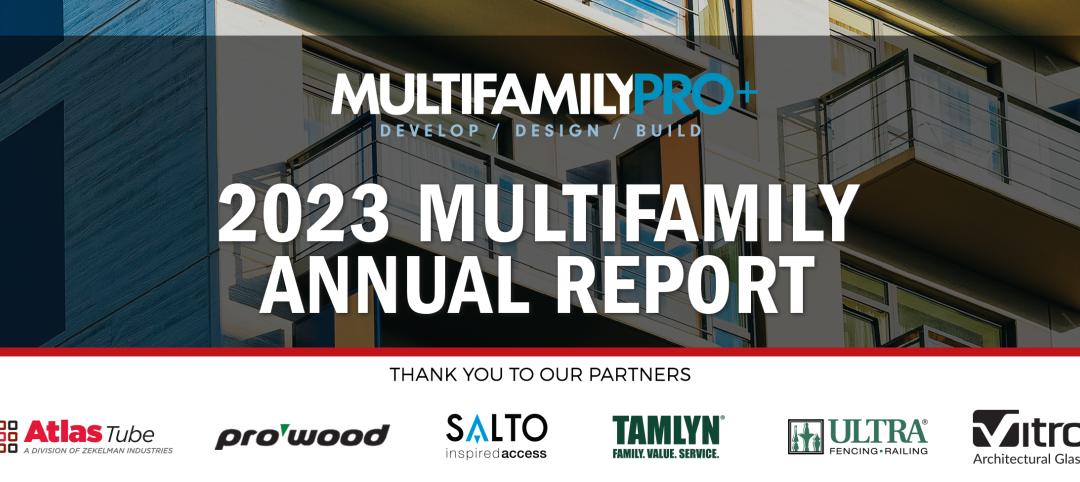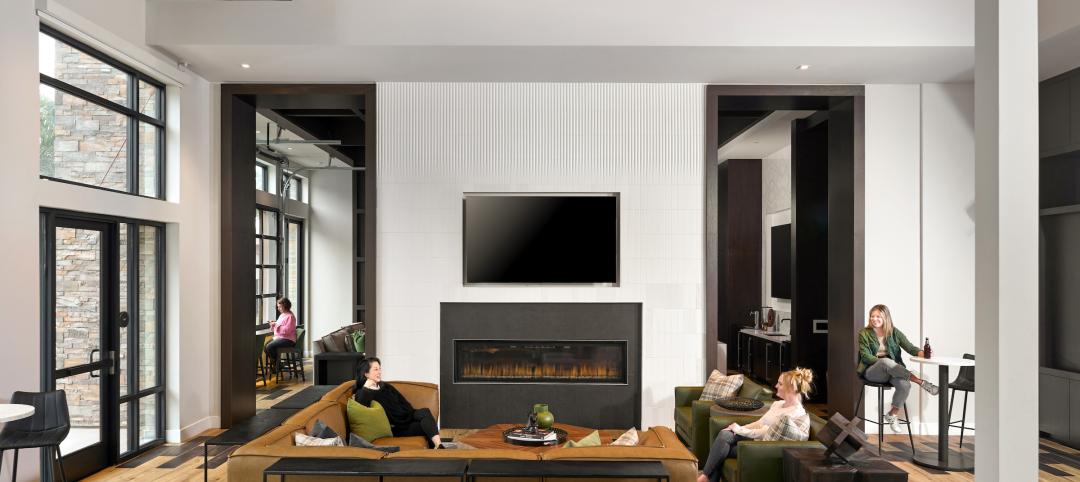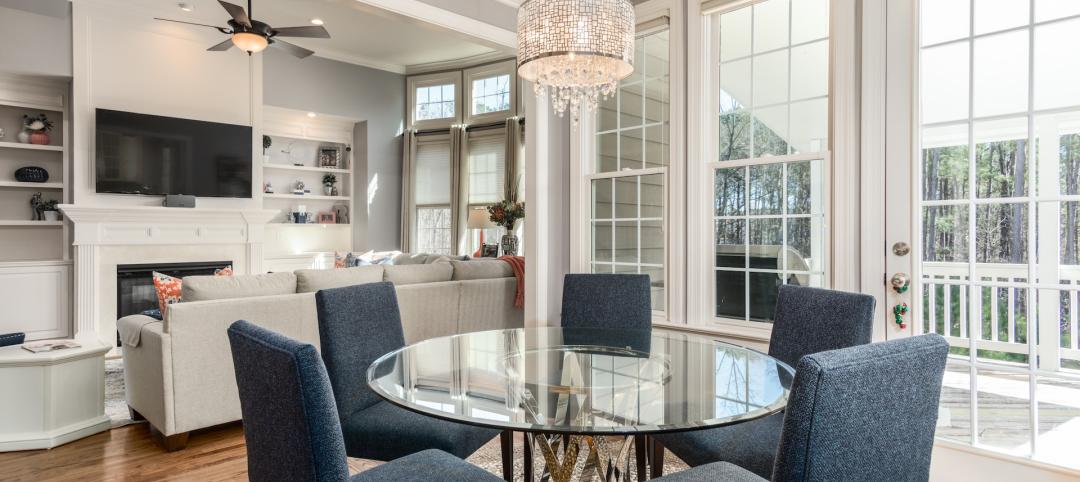The B. Thomas Golisano Hope Lodge Hospitality House, located on the edge of the Colgate Rochester Crozier Divinity School (CRCDS) campus in Rochester, N.Y., was destined to change the lives of many who have called the building home.
Constructed in the 1930s, the structure hosted CRCDS’s theological studies while serving as a seminary dormitory. Composed and rendered in the collegiate gothic style by architect James Gamble Rogers, the “Castle on the Hill” echoed similar structures found on the campuses of Yale, Columbia, and Northwestern.
Over time, the number of students requiring dormitories dwindled, and CRCDS found itself with more space than it needed.
Eventually, school officials decided to operate within a smaller footprint. However, CRCDS was still tasked with maintaining all campus buildings, including the now-vacant structure. As expenses related to the building mounted, school officials considered demolishing it.
With the future of the structure in doubt, the nearby American Cancer Society’s Rochester Hope Lodge was quickly outgrowing its facility of 25 years. It did not take long before CRCDS and American Cancer Society realized the benefits of a partnership.
Click here to view profiles of other reconstruction projects that have been recognized as part of BD+C's 28th Annual Reconstruction Awards.
As the partnership between CRCDS and American Cancer Society evolved, the CRCDS’s vacant theological studies center and seminary dormitory were selected as the home for the new Hope Lodge. Design concepts were quickly formulated, and a budget established thanks to $8 million in fundraising efforts, led by philanthropist B. Thomas Golisano.
The early stages of the reconstruction project progressed smoothly until a hazardous materials survey conducted on the facility revealed the presence of asbestos in the finishes and roofing materials. But it was also infused in the plaster covering the walls and ceilings throughout the buildings.
GIVING THE BUILDING ENVELOPE THE ONCE-OVER
In addition to the asbestos removal, the existing floor layout would have to be gutted as the narrow double-loaded corridor did not meet current egress requirements. The single-occupant rooms were cramped and much too small for the needs of Hope Lodge. Finally, the historic masonry exterior and the slate roof of the building had suffered decades of deferred maintenance and were in need of repair.
“We were, in many ways, creating a new building envelope. The restoration of the historic exterior required close coordination with the new interior perimeter,” says Jim Durfee, AIA, principal architect, Bergmann Associates.
The Building Team, consisting of local firms Bergmann Associates (architect), Torchia Structural Engineering (structural engineer), and LeChase Construction (construction manager), faced other design issues on the Hope Lodge project as well.
PRODUCT LIST
B. Thomas Golisano Hope Lodge, Hospitality House, Rochester, N.Y.Masonry Cleaner: Sure Klean
Roofing: Carlisle Epdm
Windows: Oldcastle Ogep Series 2000
Gypsum Board: USG
Window Treatments: Drapery Industries
Interior Signage & Donor Wall: Id Sign Systems
Artwork: Great American Art (Brontman’s Corporate Dimensions)
Furniture: Om Workspace (Carolina & Grand Rapids)
Lamps: Crown Electric
Interior Architectural Woodwork: Solid Surface, Zodiak
Solid Surface: Corian
Plastic Laminate: Formica
Plastic Laminate: Wilsonart
Acoustical Ceiling: Acoustical Ceiling Tile, Armstrong World Industries, Inc.
Tile Carpeting: Modular Tile Carpet, 24" X 24" Shaw Contract Group Collection, Dressed To Kill
Modular Tile Carpet: 18" X 18" Bentley Prince Street Collection, Saturnia
Modular Carpet Tile: 24"X24" Patcraft & Design Weave Collection, Construkt Series
Walk-Off Mat: 12"X12" Roppe Surface Walk-Off Mat Collection, 'Rop-Cord' Rubber (Tire Tread) Tiles
Interior Paint: Sherwin Williams, Pro-Green Interior Latex
Toilet Compartments: Hadrian
Plumbing Fixtures: American Standard
Fan Coils: Enviro-Tec Johnson Controls
Heat Recovery Units: RenewAire
Air Handlers: Mcquay
Elevators: Otis
One complicated design-related issue involved the original engineering of the two adjoining structures, Trevor and Eaton Halls. The independent structures each had their own floor levels, which did not align. “The existing footprint was particularly challenging. The fact that these were really two separate buildings separated by a quirky staircase made achieving a clear floor layout difficult,” says Durfee.
In order to get the buildings to function as one structure, a strategically located ramp allowed the second level of the structure to function contiguously while a centrally located stair with multiple flights and landings to each building provided occupant circulation.
The Building Team also faced low floor-to-ceiling heights that complicated insertion of a new HVAC system. Eventually, a four-pipe, console fan coil system was installed in order to minimize the need to extensive air distribution ductwork.
“The biggest challenge was threading new utilities through the new layout working around a very limited floor to floor height. This required careful design and utility coordination in order to maintain our aesthetic goals for the space,” says Durfee.
Handicap accessibility throughout the facility also proved problematic. The development of two exterior access points on different levels of the complex and the strategic insertion of two new elevator shafts provided a solution.
BUILDING TEAM EARNS CLIENT’S RESPECT
Hope Lodge provides free lodging and support for out-of-town patients drawn to the regional medical treatment centers in Rochester. By offering patients and caregivers a temporary home during extended periods of treatment, the Hope Lodge program frees patients from emotional and financial burdens, allowing them to concentrate on care, recovery, and quality of life.
The new 28,000-sf B. Thomas Golisano Hope Lodge Hospitality House doubled the capacity of the former Rochester Hope Lodge, while also providing 8,000 sf of office space for the American Cancer Society.
Irregular shell space resulted in unique layouts for all 30 guest rooms, each of which included a private bathroom. Common spaces and services include laundry, kitchen, dining room, living area, and a library.
On the exterior, the gothic architecture was fully restored, including the masonry, the replacement of the slate roof, and new steel sash windows that maintained the appearance of the original windows.
“I was initially concerned about the various complexities inherent in this project and with the structure of the building we were to renovate,” says Matthew Flanigan, regional vice president, American Cancer Society. “Very quickly, the Building Team assured us they were up to the task, and just as quickly began to show they were qualified. Working with this team of professionals was seamless through the many phases of planning to post-construction wrap up. Ultimately, it’s the Hope Lodge Hospitality House guests that have confirmed our true pleasure in this outcome.” BD+C
--
Click here to view profiles of other reconstruction projects that have been recognized as part of BD+C's 28th Annual Reconstruction Awards.
Related Stories
MFPRO+ Special Reports | Oct 27, 2023
Download the 2023 Multifamily Annual Report
Welcome to Building Design+Construction and Multifamily Pro+’s first Multifamily Annual Report. This 76-page special report is our first-ever “state of the state” update on the $110 billion multifamily housing construction sector.
Giants 400 | Oct 23, 2023
Top 190 Multifamily Architecture Firms for 2023
Humphreys and Partners, Gensler, Solomon Cordwell Buenz, Niles Bolton Associates, and AO top the ranking of the nation's largest multifamily housing sector architecture and architecture/engineering (AE) firms for 2023, as reported in Building Design+Construction's 2023 Giants 400 Report. Note: This ranking factors revenue for all multifamily buildings work, including apartments, condominiums, student housing facilities, and senior living facilities.
Affordable Housing | Oct 20, 2023
Cracking the code of affordable housing
Perkins Eastman's affordable housing projects show how designers can help to advance the conversation of affordable housing.
Senior Living Design | Oct 19, 2023
Senior living construction poised for steady recovery
Senior housing demand, as measured by the change in occupied units, continued to outpace new supply in the third quarter, according to NIC MAP Vision. It was the ninth consecutive quarter of growth with a net absorption gain. On the supply side, construction starts continued to be limited compared with pre-pandemic levels.
Warehouses | Oct 19, 2023
JLL report outlines 'tremendous potential' for multi-story warehouses
A new category of buildings, multi-story warehouses, is beginning to take hold in the U.S. and their potential is strong. A handful of such facilities, also called “urban logistics buildings” have been built over the past five years, notes a new report by JLL.
Building Materials | Oct 19, 2023
New white papers offer best choices in drywall, flooring, and insulation for embodied carbon and health impacts
“Embodied Carbon and Material Health in Insulation” and “Embodied Carbon and Material Health in Gypsum Drywall and Flooring,” by architecture and design firm Perkins&Will in partnership with the Healthy Building Network, advise on how to select the best low-carbon products with the least impact on human health.
Contractors | Oct 19, 2023
Crane Index indicates slowing private-sector construction
Private-sector construction in major North American cities is slowing, according to the latest RLB Crane Index. The number of tower cranes in use declined 10% since the first quarter of 2023. The index, compiled by consulting firm Rider Levett Bucknall (RLB), found that only two of 14 cities—Boston and Toronto—saw increased crane counts.
Office Buildings | Oct 19, 2023
Proportion of workforce based at home drops to lowest level since pandemic began
The proportion of the U.S. workforce working remotely has dropped considerably since the start of the Covid 19 pandemic, but office vacancy rates continue to rise. Fewer than 26% of households have someone who worked remotely at least one day a week, down sharply from 39% in early 2021, according to the latest Census Bureau Household Pulse Surveys.
Luxury Residential | Oct 18, 2023
One Chicago wins 2023 International Architecture Award
One Chicago, a two-tower luxury residential and mixed-use complex completed last year, has won the 2023 International Architecture Award. The project was led by JDL Development and designed in partnership between architecture firms Goettsch Partners and Hartshorne Plunkard Architecture.
Giants 400 | Oct 17, 2023
Top 130 Sports Facility Architecture Firms for 2023
Populous, Gensler, HOK, and HKS head BD+C's ranking of the nation's largest sports facility architecture and architecture/engineering (AE) firms for 2023, as reported in Building Design+Construction's 2023 Giants 400 Report.

















